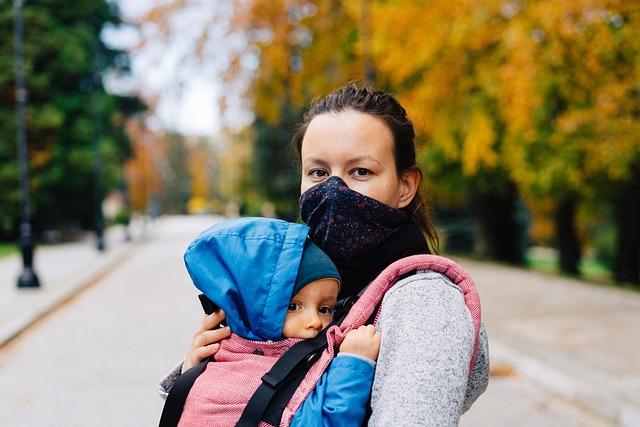Bringing home a newborn is one of the most exciting — and nerve-wracking — moments in life. As a newbie parent,you’re probably juggling a million questions all at once: Is the baby eating enough? Are those tiny sneezes normal? When should I even start worrying? Don’t worry,we’ve got your back! In this article,“Baby Health 101: Simple Tips Every Newbie Parent Needs,” we’ll break down the essentials to keep your little one happy and healthy without the overwhelm. Think of it as your friendly, no-fluff guide to navigating those first precious months with confidence. Let’s dive in!
Choosing the Right Nutrition for Your Little One
When it comes to feeding your baby, the choices can feel overwhelming, but focusing on essentials can make it simpler. In the first few months, breast milk or formula is the gold standard, providing all the nutrients your little one needs. As you transition into solids,aim to introduce a variety of textures and flavors gradually. Remember,every baby is unique—some may love avocado,while others might be wary of sweet potatoes. Don’t stress! Keep offering a balanced mix and watch their preferences develop naturally.
Here are some handy tips to keep in mind:
- Start with single-ingredient purees to monitor allergies.
- Include iron-rich foods like pureed meats or fortified cereals.
- Avoid added sugars and salt – let natural flavors shine.
- Keep water intake balanced once solids are introduced.
| Age | Nutrition Focus | Example Foods |
|---|---|---|
| 0-6 months | Breast milk or formula | Breast milk, iron-fortified formula |
| 6-8 months | Introducing solids | Pureed veggies, fruits, rice cereal |
| 9-12 months | Increasing variety and texture | Mashed beans, soft fruits, small cheese pieces |
Mastering Sleep Routines Without Losing Your Mind
Getting your little one into a smooth sleep rhythm can feel like cracking a secret code—one filled with midnight wakings, unpredictable naps, and lots of trial and error. The trick is to embrace versatility while gently guiding your baby towards a predictable routine.start by establishing a cozy,calming pre-sleep ritual that could include a warm bath,soft lullabies,or dim lighting. Babies thrive on consistency, but remember, it’s totally normal for things to shift as they grow. Patience and persistence are your best friends here. Keep a routine lighthearted and stress-free, making bedtime a positive, comforting experience rather than a battle.
- Set regular nap times to avoid overtired fussiness and crankiness.
- Use the same sleep cues every night to signal it’s time to wind down.
- Limit stimulating activities at least 30 minutes before bedtime.
Understanding sleepy signs like yawning, rubbing eyes, or sudden fussiness allows you to act quickly before your baby becomes overtired. Keep in mind that nap durations and night sleep evolve, so flexibility is key—sometimes your baby will need extra cuddles; other times, they’ll surprise you with longer stretches. To keep track without losing your sanity, consider a simple chart like the one below that helps you log sleep times and patterns.
| Time | Nap Length | Notes |
|---|---|---|
| Morning | 1.5 hrs | Quiet room, no screens |
| Afternoon | 1 hr | After lunch, stroller nap |
| Night | 10-12 hrs | Consistent bedtime at 7:30 PM |

Keeping Your Baby Safe and Sound at Home
Creating a secure surroundings for your little one means taking a proactive approach to potential hazards around the house. Start by baby-proofing crucial areas: cover electrical outlets, secure loose cords, and install safety gates at stairways. Sharp corners on furniture can be softened with cushioned protectors, and small objects that pose choking risks should be kept far out of reach. Remember, babies are curious explorers, so keeping hazardous items like cleaning supplies and medicines locked away is a must.
Establishing a consistent routine around your home’s safety setup will bring peace of mind to any new parent. Consider thes speedy safety checks you can do weekly:
- Inspect crib slats and mattress height for proper spacing and firmness
- Ensure smoke and carbon monoxide detectors are working
- Keep floors clean and free of small items like coins or buttons
- Test the water temperature before baths
| Area | Safety Tip |
|---|---|
| Kitchen | Use stove knob covers and keep knives out of reach |
| Bathroom | Never leave baby unattended even for a second |
| Living Room | Anchor heavy furniture to walls |
| Bedroom | Use breathable crib bedding and avoid loose blankets |
Essential Baby Care Hacks Every New Parent Swears By
When it comes to navigating those sleepless nights and endless diaper changes, every new parent develops their own set of trusty shortcuts that make life a little easier. One game-changer is creating a “diaper station” stocked with wipes, creams, and spare clothes—this saves precious minutes during those urgent changes. Another lifesaver? Using a white noise machine or app to mimic the womb’s calm sounds, helping your little one drift off faster and stay asleep longer. And don’t underestimate the power of swaddling! Not only does it soothe your baby, but it also helps them feel secure, much like the cozy environment they just left.
To make daily routines smoother, try incorporating these hacks:
- pre-measure formula or snacks in small containers to save prep time.
- Use a baby carrier to keep your hands free while soothing your baby on the go.
- Turn burping into a mini-break with gentle rhythmic pats paired with upbeat tunes.
Here’s a quick reference table of simple tricks and their benefits to keep close by:
| Hack | Why It Works | Pro Tip |
|---|---|---|
| Swaddling | Creates a womb-like snugness | Use breathable fabric to avoid overheating |
| White Noise | Masks household noise,calms baby | Set timer for gradual volume decrease |
| Diaper Station | Speeds up changes,reduces stress | Keep it low so baby can observe you |
| Baby Carrier | Hands-free soothing on the move | Ensure proper ergonomic support |
Q&A
Q&A: Baby Health 101 – Simple Tips Every Newbie Parent Needs
Q: how often should I be feeding my newborn?
A: Newborns typically eat every 2-3 hours,which means around 8-12 times a day. Whether you’re breastfeeding or formula feeding, just follow their hunger cues — crying, sucking on hands, or lip-smacking are good signs they’re ready to eat.
Q: my baby’s been a bit fussy lately. How do I know if it’s just normal fussiness or something more serious?
A: A fussy baby is totally normal, especially in the first few months.Check for basics first — hungry, tired, or a dirty diaper? If your baby is inconsolable, has a fever, or shows signs of illness like vomiting or rash, it’s a good idea to check in with your pediatrician.
Q: What’s the safest way to put my baby to sleep?
A: Always place your baby on their back to sleep, on a firm mattress with no loose blankets, pillows, or stuffed animals in the crib. This reduces the risk of SIDS (Sudden Infant Death Syndrome). Keep the room at a comfy temperature, and consider using a sleep sack instead of blankets.
Q: How do I keep my baby’s skin healthy?
A: Babies have super sensitive skin! Use mild, fragrance-free soaps and moisturize gently. Avoid hot baths — lukewarm water is best. And if you see any rash or irritation that doesn’t clear up, ask your doctor.
Q: When should I start tummy time?
A: right from day one (or as soon as your baby is home), start short tummy time sessions — even just a few minutes a couple times a day. It helps build neck and shoulder strength and prevents flat spots on their head.
Q: How notable are vaccinations, really?
A: Vaccinations are huge. They protect your baby from serious diseases and keep them safe while their immune system is still developing. Always follow your pediatrician’s recommended vaccine schedule.
Q: What’s the deal with diaper rash, and how can I prevent it?
A: Diaper rash is super common and usually caused by wetness or irritation. Change diapers frequently, clean gently with water or fragrance-free wipes, and let the skin breathe whenever possible. A bit of zinc oxide cream is a great go-to for protection.
Q: How can I tell if my baby is getting enough sleep?
A: Newborns can sleep up to 16-17 hours a day but frequently enough in short bursts. Look for signs they’re well-rested — generally content when awake and growing well. If you’re worried about sleep patterns or excessive fussiness,chatting with your pediatrician can help.
Q: Should I worry about my baby’s temperature? How do I check it?
A: Yep, baby temps are important! Use a digital thermometer (rectal temperature is most accurate for newborns). A fever is 100.4°F (38°C) or higher. If your baby is under 3 months and has a fever, call your doctor right away.Q: Any quick advice for new parents feeling overwhelmed?
A: You’re doing great! Trust your instincts, ask for help when you need it, and remember that this is a huge learning curve for everyone. Your baby doesn’t need perfect, just a happy, loving parent doing their best. Take it one day at a time. You’ve got this!
Key Takeaways
And there you have it—your quick and easy guide to keeping your little one happy and healthy! Remember, being a new parent is a learning curve, so don’t stress if things get a bit messy (because, believe me, they will). Trust your instincts, take it one day at a time, and don’t hesitate to reach out for support when you need it. With these simple tips in your toolkit, you’re already off to a great start. Here’s to happy,healthy baby snuggles ahead! You’ve got this!










